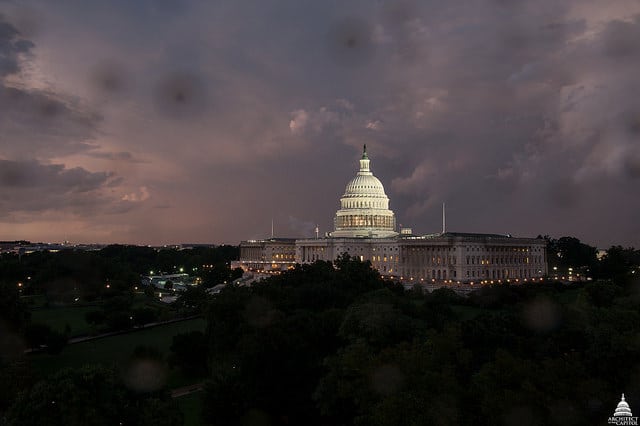
The Department of Energy’s nuclear-weapon and nonproliferation programs teetered on the brink of a funding lapse Friday at deadline for Nuclear Security & Deterrence Monitor, caught up in larger policy and political waves that threatened to temporarily shut down the entire federal government.
So, the Department of Energy (DOE) issued fresh guidelines for its civil servants and contractors, who in the short term would be expected to show up to work next week even if Congress deadlocks and allows federal funding to lapse after midnight Friday.
The last federal shutdown was in 2013. Appropriations lapsed for a little more than two weeks, and DOE’s National Nuclear Security Administration (NNSA) drafted a worst-case-scenario plan to pull thousands of civilians and contractors off the job, but keep more than 100 people at work in the agency’s Naval Reactors office. That office is responsible for servicing reactors deployed on naval war ships.
In a planning document posted Friday, the Energy Department said employees for the “immediate future” would continue to report for work as scheduled. After any carry-over funds from prior budgets are spent, employees would be furloughed and the majority of department services — those outside the protection of human life or property would — suspended.
It is unclear how long the NNSA’s carryover funding will last.
The NNSA and the rest of the government came to the edge after Democrats refused this week to vote for what would be the fourth stopgap budget bill of the 2018 fiscal year, which began on Oct. 1 of last year. The bill passed the House Thursday and would again freeze the agency’s budget at $13 billion — the Donald Trump administration asked for a $14-billion NNSA budget for fiscal 2018 — but allow the DOE Inspector General’s Office to spend above prior year levels.
The NNSA would get no such grace, under the bill.
As NS&D Monitor went to press, Senate Minority Leader Chuck Schumer (D-N.Y.) was at the White House for 11th-hour negotiations with President Trump, The Washington Post reported. It remained to be seen if the sides could compromise on the terms of another one-month continuing resolution, which focuses on Democrats’ demand for legal protections for young people brought into the country illegally.
The House passed the continuing resolution Thursday without Democrat support. In the 100-member Senate, the bill needs 60 votes to pass. Republicans have only a 51-seat majority, and no Democrats had decided to support the bill at deadline.